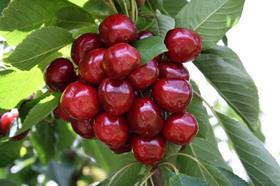
Tasmanian cherry growers have received approval, subject to the signing of a final protocol in early December, to send cherries to Mainland China.
According to a media release from Cherry Growers Australia (CGA) negotiations are continuing to secure access for growers on the Australian mainland and it is hoped access can be achieved in the 2013/14 season.
Cherry Growers Australia CEO Simon Boughey said the final details of the export protocol were being decided and he anticipated it would be signed off in early December with the first exports leaving Tasmania in late 2012.
He added that Australia had an advantage over competing supply nations, such as Chile, in that it could land product by air in China two to three days after it was harvested, while seafreight took around 14 to 16 days.
“Our growers will be targeting the top end of the market too in the peak counter-seasonal period from early December to Chinese New Year that is celebrated across a number of counties in Asia each season,” Boughey said.
Cherry Growers Australia president Andrew Smith said access to the Chinese market would help the industry achieve goals laid out under its Export Roadmap 2012 to 2017 to lift exports from 20 per cent of the country's annaul crop to 50 per cent per season by 2017.
“We have a season that lasts only 100 days, so we need to make every opportunity a winner back on the domestic market and in our exports. We get great feedback that Australian cherries are of the highest quality, have really strong appeal to consumers across Asia and they command great prices,” said Smith.
Boughey added that CGA were part of the Australia Fresh stand at the China World Fruit and Vegetable Fair where he hoped to talk to importers about the opportunities for Australian cherries.
Fruit Growers Tasmania business development manager Lucy Gregg was also at the event. “This is a fantastic opportunity for Tasmanian cherry growers and exporters to access another key Asian market like we currently have with Taiwan, South Korea and Japan because of our pest free status and a range of other markets with no protocols in place such as Hong Kong and Singapore.”



